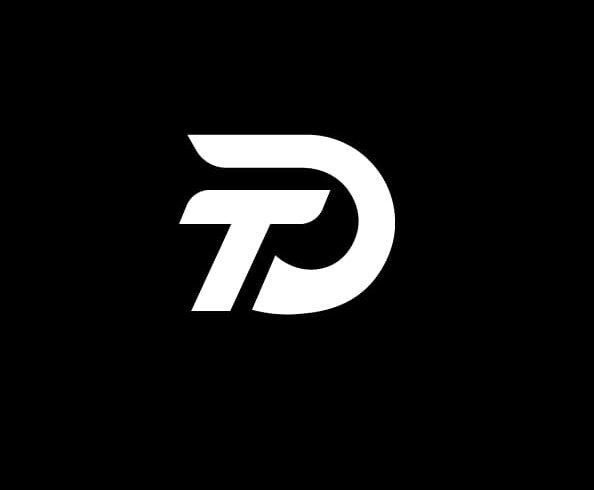The Trulife Distribution lawsuit has sparked considerable attention in the distribution industry, highlighting the complexities of business rivalries and the legal systems that govern them. This legal battle is not just about a corporate dispute; it involves intricate family dynamics, legal frameworks, and business ethics. In this article, we will break down the details of the lawsuit, the key players involved, the outcome, and what it all means for the distribution industry and beyond.
Background of Trulife Distribution and NPI
Before we dive into the heart of the Trulife Distribution lawsuit, it’s important to understand the companies at the center of this legal conflict: Trulife Distribution and Nutritional Products International (NPI).
NPI, based in Florida, was founded in 2008 by Mitch Gould. This company is known for distributing nutritional products, focusing on helping brands enter the U.S. market. Over the years, NPI has built a solid reputation in the industry. It offers services ranging from branding to logistics and marketing, helping its clients thrive in the competitive health product market.
On the other hand, Trulife Distribution, founded by Brian Gould in 2019, is a newer player in the same sector. Brian, the CEO, has a deep connection with NPI, having worked there for 13 years, including a period as president. Trulife’s business model mirrors NPI’s in many ways, but with its own unique strategies and goals. However, it is this connection—and the resulting competition—that has led to the legal tensions between the two companies.
Summary of the Legal Dispute
The Trulife Distribution lawsuit primarily revolves around allegations of false advertising, misrepresentation, and unethical business practices. In 2022, NPI filed a lawsuit against Trulife Distribution, claiming that Trulife had made deceptive statements aimed at poaching NPI’s clients. Specifically, NPI accused Trulife of using fake email addresses and misappropriating case studies that NPI had developed to gain business. These actions, according to NPI, were intended to mislead clients into thinking that Trulife was the original source of the information and success stories.
The lawsuit was filed under several legal statutes, including the Florida Deceptive and Unfair Trade Practices Act, the Lanham Act, and the Anti-Cybersquatting Consumer Protection Act. These laws provide a framework for protecting businesses from unfair competition and deceptive business practices.
One of the main points of contention is the use of imitation email addresses, which NPI claims was designed to confuse clients into believing they were dealing with NPI. In addition, Trulife Distribution was accused of presenting NPI’s case studies as their own, which NPI argued was an attempt to benefit from the hard work and resources NPI had invested in building client relationships.
Key Players and Family Dynamics
What makes this lawsuit particularly intriguing is the family connection between the two CEOs: Mitch Gould of NPI and Brian Gould of Trulife Distribution. This family dynamic adds a layer of complexity to the legal battle.
Brian Gould, before founding Trulife, worked at NPI for over a decade. He was once the president of NPI, which gives him intimate knowledge of the company’s operations and trade secrets. The relationship between the two men, both professionally and personally, likely adds tension to the case, with both sides potentially having emotional stakes in the outcome.
While it’s common for business competitors to engage in legal disputes, the Gould brothers’ history raises questions about loyalty, trust, and the ethics of competition. This situation is not just about business; it’s also about personal and familial ties that are being tested in the courtroom.
Allegations in the Lawsuit
The Trulife Distribution lawsuit is filled with serious allegations, some of which are quite complex. The central allegations revolve around deceptive trade practices, including:
- Misleading Advertising: Trulife is accused of using false information to attract clients. The company allegedly misrepresented its success and capabilities by presenting NPI’s case studies as its own.
- Imitation Email Addresses: This is a particularly concerning claim. Trulife allegedly created fake email addresses that mimicked those of NPI, leading clients to believe they were communicating with NPI when they were, in fact, dealing with Trulife. This type of cyber misrepresentation could lead to significant financial and reputational damage for any business.
- Unfair Competition: By using NPI’s materials and intellectual property without permission, Trulife allegedly engaged in unfair business practices, which is a violation of both ethical standards and legal statutes.
These allegations paint a picture of a company that has gone to great lengths to gain an advantage in a competitive market, potentially at the expense of ethical business practices.
Legal Framework and Laws Involved
To fully understand the Trulife Distribution lawsuit, we need to look at the legal frameworks that NPI invoked. The case touches upon several significant legal acts, each designed to protect businesses from unfair practices:
- Florida’s Deceptive and Unfair Trade Practices Act: This law is intended to protect consumers and businesses from unfair competition and deceptive trade practices. NPI argued that Trulife’s actions violated this statute, making it a key part of their case.
- The Lanham Act: This federal law deals with trademark infringement, false advertising, and unfair competition. By claiming that Trulife used NPI’s intellectual property without permission, NPI invoked the Lanham Act to assert that Trulife had violated trademark protections and engaged in false advertising.
- The Anti-Cybersquatting Consumer Protection Act: This act specifically addresses the issue of domain name squatting and the use of confusingly similar online identities. Since Trulife allegedly used fake email addresses to confuse clients, this law was particularly relevant to the case.
Outcome and Resolution of the Lawsuit
The Trulife Distribution lawsuit ultimately reached a resolution in 2022. NPI voluntarily dismissed the lawsuit in June 2022, and the court officially dismissed the case. While the dismissal of the case was a win for Trulife, it did not completely resolve the underlying issues between the two companies.
It’s important to note that this lawsuit was not the first legal dispute between NPI and Trulife. In 2019, a previous legal conflict arose when NPI accused Trulife of cloning its operations. However, that dispute was settled through mediation in 2021. The 2022 lawsuit was essentially a continuation of the tensions that had been building up over the years, even after the prior resolution.
Industry Impact and Ethical Concerns
The Trulife Distribution lawsuit has broader implications for the distribution industry, particularly in the realm of business ethics. This case raises important questions about the lengths to which companies should go in order to gain a competitive advantage. While competition is a natural part of business, it’s essential that companies play by the rules and maintain ethical standards.
For businesses in the distribution sector, this lawsuit serves as a cautionary tale about the importance of protecting intellectual property and maintaining transparent communication with clients. The use of imitation email addresses and misleading advertising can undermine trust and damage a company’s reputation, both in the short and long term.
Lessons for Stakeholders
The Trulife Distribution lawsuit offers several lessons for both businesses and consumers:
- For Businesses:
- Always ensure that your marketing materials are truthful and transparent.
- Protect your intellectual property and be mindful of how competitors may use it.
- When engaging in legal disputes, it’s essential to carefully consider the ethical implications of your actions.
- For Consumers:
- Be vigilant when dealing with companies in competitive markets. Understand who you’re doing business with and verify the legitimacy of any claims made.
- Know your rights as a consumer and seek legal advice if you feel you’ve been misled or deceived.
Future Implications and Conclusion
The Trulife Distribution lawsuit may be over, but its implications will likely reverberate for years to come. This case has highlighted significant legal and ethical issues that are likely to influence the way businesses operate in the distribution industry moving forward.
While both companies have put this particular legal conflict behind them, the ongoing tension between NPI and Trulife could lead to further disputes down the line. Moreover, the industry at large may see changes in how companies handle intellectual property and competition as a result of this case.
For now, the Trulife Distribution lawsuit serves as a reminder that in business, competition should never come at the expense of ethics and honesty. As the industry evolves, companies must continue to uphold the standards that ensure fair and just practices in the marketplace.

